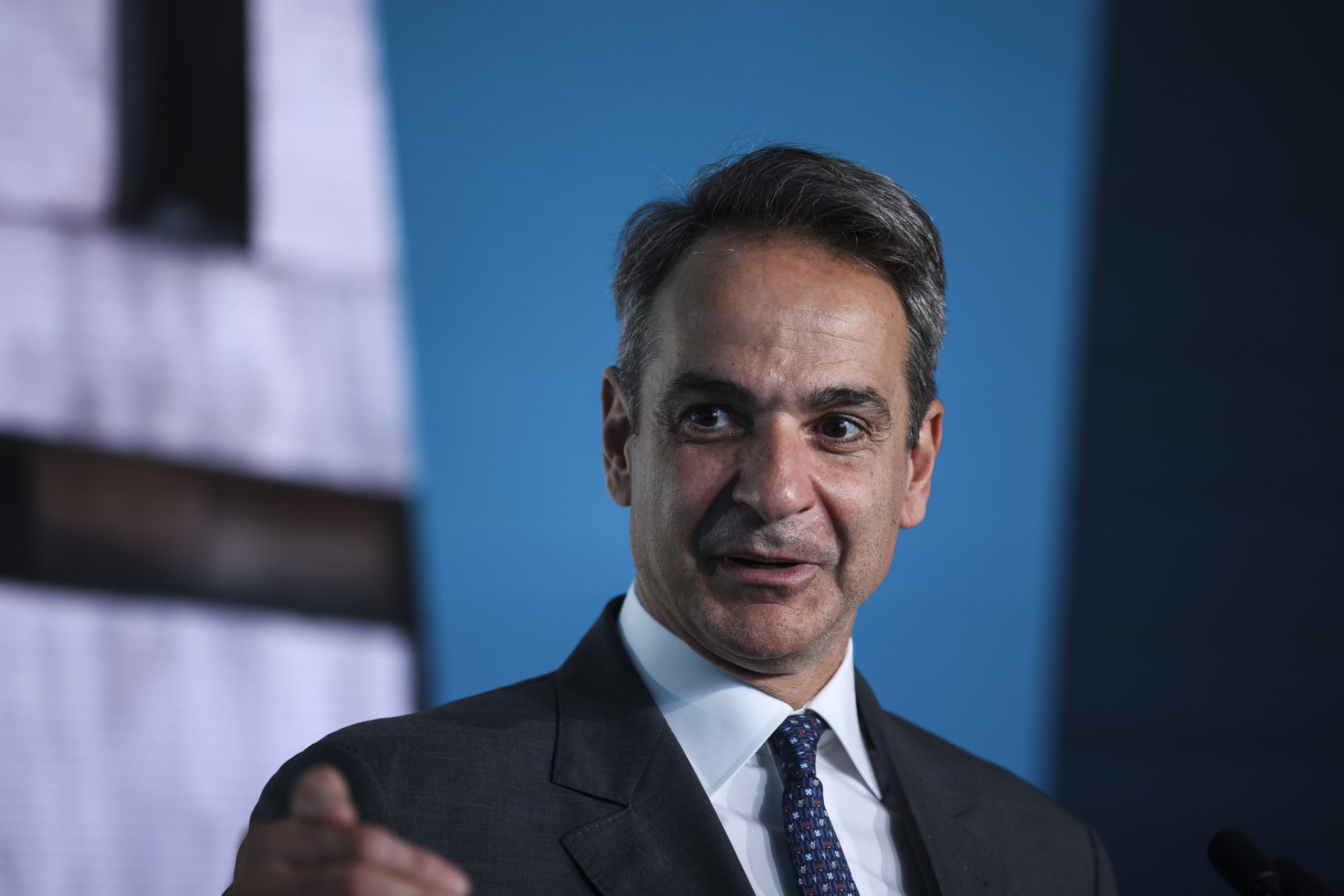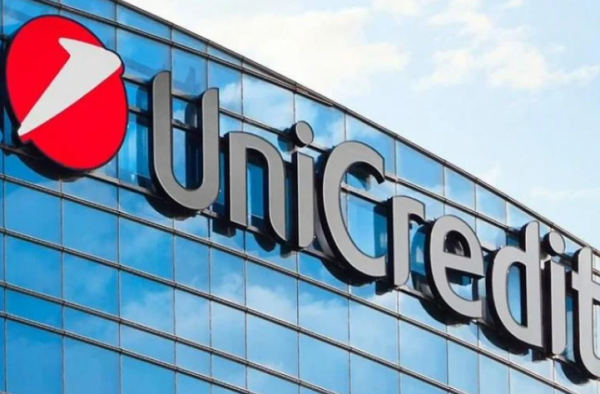
The count-down to the 88th Thessaloniki International Fair (TIF) has begun and all eyes are turned towards Prime Minister Kyriakos , Mitsotakis’ address on Saturday, Sept. 7, where he is expected to announce a renewed public policy agenda and attempt to appease disatisfied voters suffering from rising prices and stagnant wages.
Mitsotakis’ center-right government is expected to announce more social support measures during a particularly challenging time for households, which are struggling with the high cost of living, especially continuously rising food prices and skyrocketing rent prices. The latter, in turn, have caused a housing shortage in urban areas, especially in the greater Athens area. Conversely, Greece enjoys one of the highest home ownership rates in the EU.
And all of this is happening against the backdrop of an aging population in the Greece, which leaves actuaries scratching their heads over who will pay for future pensions.
A large portion of the measures that will be announced by Mitsotakis himself, although not yet finalized, clearly aim at improving citizens’ daily lives, according to a dispatch by the state-run AMNA news agency, with the premier expected to refer to housing and demographic issues, a much-needed upgrade of public health and education services, and support to so-called vulnerable groups.
Pensioners, families with three children or more and women are also in the government’s sights.
Housing and Demographics Woes
The government will continue to try to make home purchases easier for younger aduts, but it is unclear how this will be possible, considering the fact that Greece’s new university grads at the bottom of salary scales in Europe. Meanwhile, a recent report by TA NEA reveals that 50% of Greece’s private sector employees are in the at risk for poverty bracket.
Despite the gloomy news, Greece has a new target audience in mind when it comes to housing support- the 30-49 year olds. Albeit a bit ‘late to the game’, the Greek government has finally realized that even higher age brackets in Greece struggle to meet the basic criteria for housing loans and is therefore establishing a policy around it.
Along these lines, AMNA reveals that subsidized bank loan are envisioned for those between 30-49 years, along with modified income criteria and more perks for families with three or more children.
In continued moves against the negative impact of short-term leases, alson known as the Airbnb market, on the availability of affordable housing for Greeks, the government is considering setting caps on the number of short-term rental periods during the year and imposing more restrictions on short-term rentals. While it maybe be a move in the right direction to put downward pressure on the lower-cost housing market, it is destined to draw more grumbles from those who invested in the booming Airbnb market to begin with.
The government also wants to provide incentives to get vacant apartments on the market for rent and is reportedly working on an incentives package to make this possible. This could serve the double purpose of increasing apartment stocks and giving a much-needed facelift to the remainder of Athens’ ‘outdated’ apartments, which can also safetly be deemed as eyesores in the city.
The final program, called “Social Exchange”, aims to build more than 2,500 homes for citzens under 39 and also support large families, says AMNA, and more details are expected to be announced by Mitsotakis as to exactly how this will be made possible.
Social Security and the Labor Market
The government is prioritizing pension and labor issues, with key interventions planned in several areas, says AMNA.
For pensions, the focus will be on increasing primary pensions by 2.5%-3%, based on a new wage index starting January 1, 2025. Additionally, there will be efforts to reduce the impact of the solidarity contribution on pensioners, potentially offering a special allowance for low-income pensioners who receive minimal or no increase from the upcoming adjustments.
More planned reforms to social security and pensions comes as no surprised, as the proposed plans have been covered in the press for months now.
Changes to unemployment benefits are also on the horizon, with plans to link them to workers’ wages and insurance duration, providing more support at the start of unemployment, says AMNA.
In the labor sector, the government says it aims to strengthen collective bargaining at the sectoral and regional levels, coupled with further increases to the minimum wage, but media reports at TA NEA show there is a big gap between the Ministry of Labor’s proposed approach and Greece’s largest union GSEE.
Along the lines of planned support for ‘vulnerable groups’, AMNA notes plans to boost non-pension benefits like sickness allowances for non-salaried workers.
And the government would like to enhance job opportunities for Greece’s young people under 30, which are some of the worst paid in Europe, and promote women’s employment while also making it easier for them to keep having children.
Lastly, AMNA says the Greek government will present a package to encourage the hiring of workers over 55 years old, and it will be interesting to see how the Greek government plans to get an older, less digitially skilled portion of the Greek labor market ship-shape for employment in a rapidly AI dominated world.
About TIF
The Thessaloniki International Fair is held each year in Thessaloniki and is considered to be the place the incumbent prime minister elaborates upon the government’s key policy proirities for the rest of the year, as the parliament, schools and Greece all head back to business after the August summer holiday season.
This year, Germany will be the “Honored Country” at the 88th Thessaloniki International Fair (TIF) that will take place September 7-15, 2024.
Source: tovima.com
Latest News

Airbnb: Greece’s Short-Term Rentals Dip in March Amid Easter Shift
Data from analytics firm AirDNA shows that average occupancy for short-term rentals dropped to 45% in March, down from 49% the same month last year.

Easter Week in Greece: Holy Friday in Orthodoxy Today
At the Vespers service on Friday evening the image of Christ is removed from the Cross and wrapped in a white cloth

Meloni and Trump Meet in Washington, Vow to Strengthen Western Ties
“I am 100% sure there will be no problems reaching a deal on tariffs with the EU—none whatsoever,” Trump stressed.

ECB Cuts Interest Rates by 25 Basis Points in Expected Move
The ECB’s Governing Council opted to lower the deposit facility rate—the benchmark for signaling monetary policy direction—citing an updated assessment of inflation prospects, the dynamics of underlying inflation, and the strength of monetary policy transmission.

Current Account Deficit Fell by €573.2ml Feb. 2025: BoG
The improvement of Greece’s current account was mainly attributed to a more robust balance of goods and, to a lesser extent, an improved primary income account

Hellenic Food Authority Issues Food Safety Tips for Easter
Food safety tips on how to make sure your lamb has been properly inspected and your eggs stay fresh.

Greek Kiwifruit Exports Smash 200,000-Ton Mark, Setting New Record
According to data by the Association of Greek Fruit, Vegetable and Juice Exporters, Incofruit Hellas, between September 1, 2024, and April 17, 2025, kiwifruit exports increased by 14.2%.

Easter Tourism Boom: Greece Sees 18.3% Surge in Hotel Bookings
Among foreign markets, Israel has emerged as the biggest growth driver, with hotel bookings more than doubling—up 178.5% year-on-year.

Greece to Launch Fast-Track Tender for Offshore Hydrocarbon Exploration
Last week, Papastavrou signed the acceptance of interest for the two Cretan blocks, while similar decisions regarding the two Ionian Sea blocks were signed by his predecessor

American-Hellenic Chamber of Commerce to Open Washington D.C. Branch
AmCham's new office aims aims to deepen U.S.-Greece economic ties and promote investment and innovation between the two countries







![Πλημμύρες: Σημειώθηκαν σε επίπεδα ρεκόρ στην Ευρώπη το 2024 [γράφημα]](https://www.ot.gr/wp-content/uploads/2025/04/FLOOD_HUNGRY-90x90.jpg)




![Airbnb: Πτωτικά κινήθηκε η ζήτηση τον Μάρτιο – Τι δείχνουν τα στοιχεία [γράφημα]](https://www.ot.gr/wp-content/uploads/2024/07/airbnb-gba8e58468_1280-1-90x90.jpg)























![Airbnb: Πτωτικά κινήθηκε η ζήτηση τον Μάρτιο – Τι δείχνουν τα στοιχεία [γράφημα]](https://www.ot.gr/wp-content/uploads/2024/07/airbnb-gba8e58468_1280-1-600x500.jpg)


 Αριθμός Πιστοποίησης
Αριθμός Πιστοποίησης